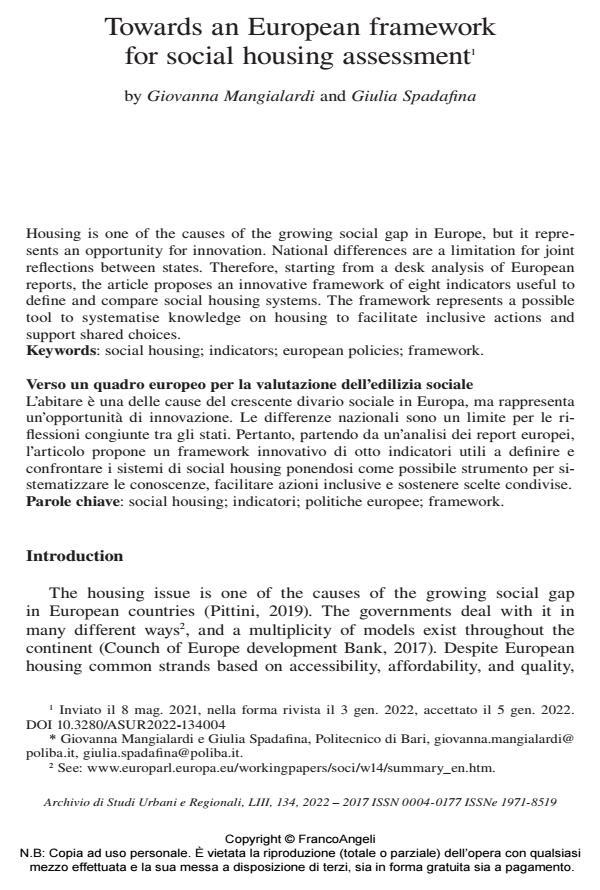Towards an European framework for social housing assessment
Journal title ARCHIVIO DI STUDI URBANI E REGIONALI
Author/s Giovanna Mangialardi, Giulia Spadafina
Publishing Year 2022 Issue 2022/134
Language English Pages 28 P. 74-101 File size 222 KB
DOI 10.3280/ASUR2022-134004
DOI is like a bar code for intellectual property: to have more infomation
click here
Below, you can see the article first page
If you want to buy this article in PDF format, you can do it, following the instructions to buy download credits

FrancoAngeli is member of Publishers International Linking Association, Inc (PILA), a not-for-profit association which run the CrossRef service enabling links to and from online scholarly content.
Housing is one of the causes of the growing social gap in Europe, but it repre- sents an opportunity for innovation. National differences are a limitation for joint reflections between states. Therefore, starting from a desk analysis of European reports, the article proposes an innovative framework of eight indicators useful to define and compare social housing systems. The framework represents a possible tool to systematise knowledge on housing to facilitate inclusive actions and support shared choices.
Keywords: social housing; indicators; european policies; framework.
Giovanna Mangialardi, Giulia Spadafina, Towards an European framework for social housing assessment in "ARCHIVIO DI STUDI URBANI E REGIONALI" 134/2022, pp 74-101, DOI: 10.3280/ASUR2022-134004